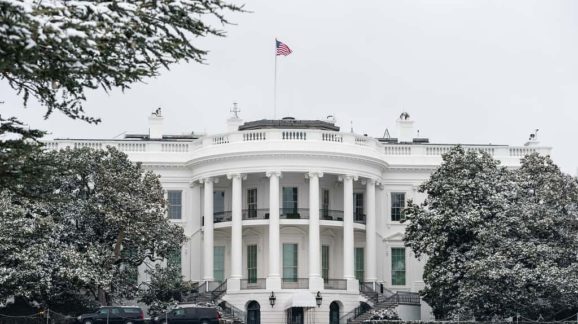Biden’s Carried Interest Tax Would Force All Partnerships to Carry Big Burden

Photo Credit: Getty
“The Biden administration and its allies excel at leveraging crises to expand government,” observes my CEI colleague Wayne Crews on the Biden “infrastructure” plan. The flipside of that is that the plan would also shrink investment and innovation in the private sector through its massive tax hikes.
Much has been written about the corporate and capital gains tax rates outlined in the plan being the highest at in the world. Ray Keating, chief economist of the Small Business and Entrepreneurship Council, writes that “in reality, taxes on upper-income earners do not exclusively affect those being particularly targeted. Rather, the increased costs and altered incentives, again, have clear negatives in terms of lost economic, income, and employment growth.”
One of the most destructive provisions of the plan would directly hit businesses of all sizes. The carried interest tax is a direct attack on the structure of partnerships that are used by innovative businesses—from small firms to venture capital and angel investors — that take risks and make an outsized contribution to economic growth and job creation.
The Biden administration “fact sheet” misleadingly implies that a carried interest tax would only hit hedge funds, while other proponents of the tax hike portray carried interest as a perk for private equity. But in reality, the tax, as proposed in the administration’s plan, would impact partnerships of all sizes, including those with individual partners earning less than the $400,00 threshold, who Biden promises will be protected from tax increases.
While I have defended both hedge funds and private equity as vehicles for boosting returns for all investors and implementing governance reforms at troubled companies, it’s important to note that nearly all types of partnership utilize the so-called carried interest “loophole,” which actually is just the basic treatment of partnerships in tax law.
In all types of partnerships—from hedge funds to venture capital to small businesses—the partners are taxed on a business’ earnings at individual tax rates, instead of the business being taxed at corporate rates and then doubly taxed on any dividends it pays out. In many partnerships, some partners get bigger stakes in the company because of the services they perform, in addition to the capital they have contributed. This is called the “carried interest.”
The individual with the carried interest is taxed at the rates of ordinary income for his or her salary and for much of the business’ activities. But these partners pay the individual capital gains rate when the other partners receive capital gains for sales of such assets as stock and real estate. The president’s budget would drastically change this, taxing these gains as ordinary income and subjecting them to payroll taxes. This would more than triple the rate of taxation in many cases.
In Biden’s plan, there is no asset or income threshold for the new carried interest tax, so firms from venture capital houses to doctors’ offices to family farms, all of which are often structured as partnerships, could be negatively affected. According to a 2011 study by the accounting firm Ernst & Young, “flow-through businesses” such as partnerships and limited liability companies “employ more than one-half of the private sector workforce in every state except for Delaware and Hawaii.”
A report by the accounting firm KPMG on the “American Jobs and Closing Tax Loopholes Act,” which passed the Democratic-controlled House in 2010 and applied tax treatment to carried interest similar to the Biden plan, found that the bill “could apply to partnerships in virtually any kind of business and could fundamentally change how partnerships are taxed.” (original document I first quoted here is no longer available online).
Even if there were an asset threshold for partnerships in the legislation eventually put forth, this tax hike should still be rejected because of its devastating effects on the job creators. Although their investment strategies differ, large venture capital partnerships are organizationally structured in the same manner as hedge funds.
According to the National Venture Capital Association, “By more than doubling the taxes paid by venture capitalists on carried interest, Congress would be upending the risk/reward balance and creating serious economic consequences for very little revenue.” (original document I first quoted here is no longer available online).
Ironically, by stifling innovative partnerships, Biden’s carried interest tax hike would also cutt the lifeline of some of the very types of businesses he champions. Folks peddling “green energy,” for instance, are getting tons of funding from private equity, venture capital, and angel investors. So are many worthy traditional companies, such as health care firms.
In his address to Congress on April 28, the president spoke of “winning the future for America.” But his proposed tax hikes on innovation and entrepreneurship are a recipe for, to borrow his phrasing, losing the future.